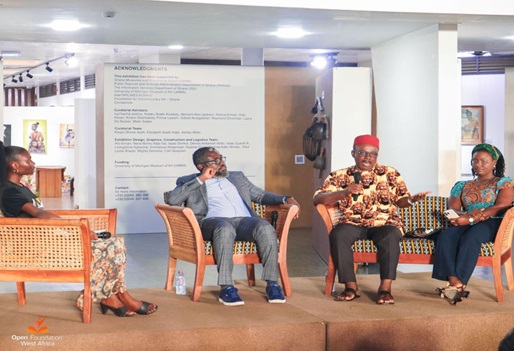Africa has been portrayed as a passive continent, with Africans mostly depicted as lacking urgency in actively partaking in activities or shaping discourse, influencing, or impacting the continent.
Knowledge production is a key area in which Africans can exert agency in charting our development course. Ideally, knowledge production by African scholars should inform policy recommendations, resulting in relevant and targeted development policies for Africa's advancement. Nevertheless, a significant disparity in knowledge production exists between the Global North and the Global South.
This disparity results in a lot of perspectives and information being generated and disseminated primarily by the Global North, therefore shaping the discourse and narratives about countries in the Global South.
While knowledge production by African scholars to promote and increase African scholarship constitutes one avenue for Africans to exercise agency in shaping the continent's discourse and developmental trajectory, content creation offers a more accessible avenue for amplifying African voices and narratives and for influencing perceptions about the continent. However, a significant disparity in digital content still exists between Africa and other regions of the world. In her keynote address, Dr Toni Luck, co-founder of the Diaspora Africa Forum (DAF), highlighted the issue of individuals arriving on the continent with preconceived notions, shaped by negative media portrayals. This underscores the importance of initiatives like the Africa Wiki Challenge (AWC), which empowers Africans to take ownership of Africa’s content in the digital space, to reshape and influence perceptions of the continent.
Open Foundation West Africa (OFWA), a Ghanaian tech NGO, affiliated with Wikimedia Foundation, seeks to promote the representation of Africa online through its annual content creation initiative, the Africa Wiki Challenge (AWC). The Challenge aims to encourage Africans and those of African descent, to actively contribute to shaping the narrative and visibility of Africa in the digital space. By leveraging Wikipedia and its sister projects, the Challenge provides a platform to amplify African voices, perspectives, and content. The objective is to influence perceptions, reclaim African narratives, and address the underrepresentation of African content online, in comparison to other geographical regions.
This year marked the Fifth Edition of the Africa Wiki Challenge, which was launched on May 23, 2025, at the National Museum of Ghana. The theme for the contest this year, ‘Reclaiming our Narrative: Justice for Africans and the Diaspora through Reparations’, calls on participants of the contest to create new Wikipedia articles, edit existing ones, or upload relevant photos. This year’s theme aligns with the African Union’s (AU) theme of the year, which highlights the AU’s commitment to justice in relation to the reparations movement.
During a panel discussion centered on the theme at the launch of AWC 2025, a recurring message from the panelists during the discussion was the need to decolonise. This includes decolonising our minds as a people —encouraging Africans to embrace our Africanness and to acknowledge our intrinsic value, to be able to progress. There is additionally the need to decolonise the digital space, to represent and increase visibility of African content, consequently shaping African narratives and perceptions.
Another key insight from the panel discussion was the call to recognise that the reparations movement is not rooted in revenge, nor is it solely concerned with legal or financial compensation. Rather, it is fundamentally about moral redress. There is therefore the need to revise educational curricula, ensuring that the reparations discourse is not reduced to monetary considerations alone. Emphasis should also be placed on the non-commercial dimensions of reparations, such as strengthening of social bonds between Africans and the diaspora separated through the slave trade, advancing cultural restitution, among others.
The Africa Wiki Challenge is open until the end of July 2025. Interested participants seeking to contribute to increasing Africa’s digital content, to shape perceptions and reclaim African narratives can register here to join the Wikimedia movement.
The author is Pamela Adwoa Carslake, Communications Officer - Open Foundation West Africa

